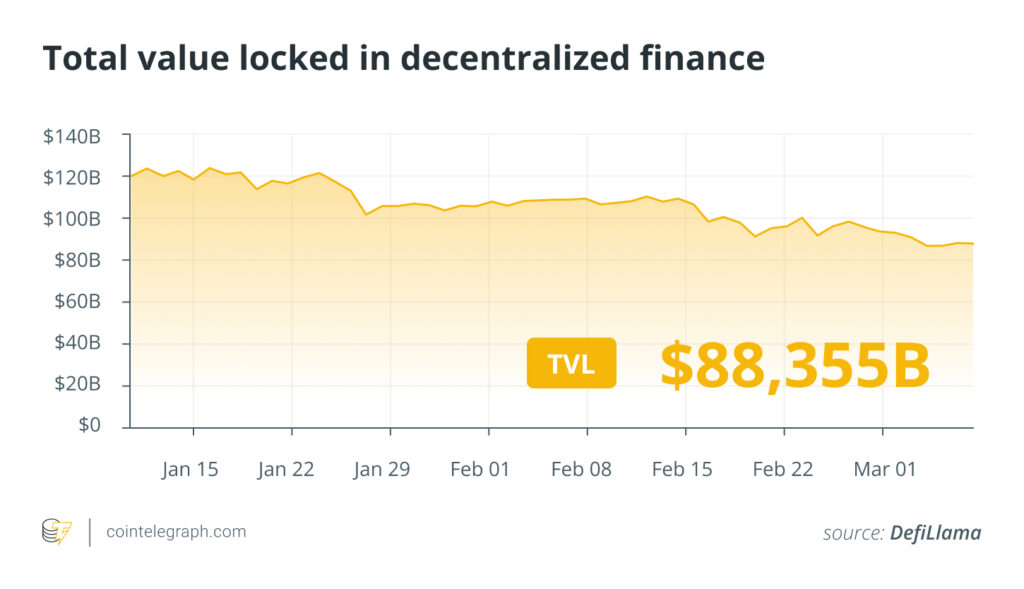In a pivotal moment for the cryptocurrency landscape, the United States House of Representatives has taken a significant step by voting to nullify a controversial regulation affecting decentralized finance (DeFi) protocols. This decision follows a previous vote in the Senate and comes as a relief to many in the crypto community who have expressed concern over privacy invasion and regulatory overreach. The rule, known as the IRS DeFi broker rule, aimed to require DeFi platforms to report detailed transaction data to tax authorities, a move that sparked strong opposition from various stakeholders.
“The DeFi broker rule invades the privacy of tens of millions of Americans, hinders the development of an important new industry in the United States and would overwhelm the IRS,” said Representative Mike Carey, the motion’s sponsor.
Meanwhile, the Solana network is experiencing its own governance drama as a major proposal intended to slash its inflation rate was turned down. Nearly 74% of Solana’s staked supply participated in this governance vote, marking a new record for engagement, yet the motion fell short of the required support. Despite the defeat, advocates view this as a testament to the democratic processes within the Solana ecosystem.
“This was a meaningful scaling stress test — a social, rather than technical, stress test — and the network passed despite a wide stratification of diverging opinions and interests,” noted Multicoin Capital co-founder Tushar Jain.
In broader market news, Bitcoin has seen a significant decline, dropping over 14% recently and closing around ,708. Analysts attribute this decline to a combination of factors, including disappointment over the lack of clear federal support for cryptocurrency initiatives from the government. This falls within what experts are calling a “macro correction” in what is still considered a bull market for cryptocurrencies, with some projecting future support levels around ,000 to ,000.
Additionally, concerns continue to grow in the crypto community regarding politically endorsed cryptocurrencies, following a staggering collapse of the Libra token, which had a market cap wipeout of billion. Calls for stricter regulations and better investor protections are being voiced to prevent similar occurrences in the future.
In operational news, the trading platform Hyperliquid recently raised its margin requirements after suffering a million loss due to a large Ether liquidation incident. Such adjustments reflect the growing pains of platforms navigating the complexities and risks associated with leveraged trading.
As this evolving story unfolds, the cryptocurrency industry remains a space of dynamic changes and complexities, with regulatory shifts, governance decisions, and market volatility all playing crucial roles in shaping its future.
Key Developments in the Crypto Industry
Recent legislative and governance events in the crypto space have significant implications for both investors and the future of decentralized finance (DeFi). Here are the essential takeaways:
-
US House Votes to Repeal IRS DeFi Broker Rule:
- In a critical vote, the House repealed a rule imposing reporting obligations on DeFi protocols to the IRS.
- The rule aimed to expand IRS oversight, requiring DeFi platforms to disclose information about crypto transactions.
- This decision prioritizes the privacy of users and may foster growth in the DeFi sector.
-
Solana Governance Proposal Rejected:
- A governance proposal aimed at reducing Solana’s inflation rate by 80% was rejected despite significant stakeholder participation.
- The vote attracted 74% of the staked supply but failed to meet the required approval threshold.
- This reflects a robust governance process and community engagement within the Solana ecosystem.
-
Bitcoin Price Correction:
- Bitcoin experienced a retracement to approximately ,708, attributed to external market factors and federal actions.
- Analysts suggest this correction is part of a broader macro trend rather than an early bear market signal.
- Investors should monitor Bitcoin’s price levels closely as it remains within a volatile market environment.
-
Need for Stronger Protections for Politically Endorsed Tokens:
- The collapse of the Libra token amplifies calls for stricter regulations on politically endorsed cryptocurrencies.
- Proposed measures include liquidity locking and restrictions to prevent the impact of insider trading.
- These actions may enhance investor trust and stability in politically influenced tokens.
-
Hyperliquid Adjusts Trading Margin Requirements:
- In response to a significant liquidation of Ether positions, Hyperliquid raised margin requirements for traders.
- This change aims to mitigate risks associated with large-scale liquidations in volatile markets.
- Traders need to adapt to new collateral requirements to avoid liquidation losses.
“The developments in the crypto industry highlight the balance between innovation and regulation, underscoring the importance of user privacy and systemic safeguards.”
Deciphering the Impact of Recent Crypto Developments
The recent voting by the US House of Representatives to nullify the IRS DeFi broker rule marks a pivotal moment for the decentralized finance (DeFi) landscape, allowing such protocols to maintain their integral privacy features. This repeal, with bipartisan support, presents a significant competitive advantage for the crypto sector as it discourages overregulation that could stymie innovation and growth. Forward-thinking investors and developers can now operate without the looming threat of extensive government scrutiny, allowing them to experiment freely with privacy-preserving technologies.
However, this victory is not without its challenges. The failed governance proposal on the Solana network, which aimed to reduce its inflation rate dramatically, highlights a contrasting sentiment within the crypto community. The rejection of this proposal by a majority underscores the complexities of consensus in decentralized governance and signifies potential resistance to radical changes, which could create hurdles for stakeholders looking to adjust economic models to enhance stability.
Moreover, the broader implications of these legislative decisions and governance dynamics serve differing segments of the crypto community. While developers and protocol designers may rejoice at the reduced regulatory burden, traditional investors might face increased uncertainty surrounding market stability as projects navigate both innovation pressures and governance hurdles. Additionally, the recent turmoil in the politically-backed Libra token suggests that the intersection of crypto and government can yield volatile results. This could deter potential entrants into the crypto space, particularly from traditional finance backgrounds where stability is often prioritized.
Furthermore, the scrutiny on political memecoins, particularly after significant collapses like that of Libra, could deter investors seeking to diversify their portfolios with politically endorsed projects. Stricter rules may impose an additional layer of compliance that could stifle the creativity and risk appetite often seen in the crypto market. On the flip side, it could empower more robust structures that foster trust among cautious investors.
The issues surrounding margin requirements and their increment due to substantial losses in platforms like Hyperliquid reflect a critical needs-based evolution in trading strategies. The increased requirements may create barriers for smaller traders but simultaneously enhance the platform’s stability, appealing to more risk-averse market participants seeking safer environments for their investments.
In summary, the recent legislative actions and ongoing governance challenges present unique opportunities and hurdles for varying stakeholders in the crypto sphere. While regulatory relief might invite more innovation and participation, underlying governance disputes and market instability could curtail investor enthusiasm, creating a mixed bag of prospects ready for exploration.
















